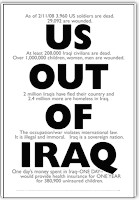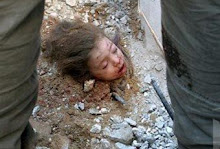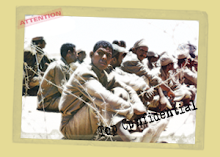
"Sheikh Yusuf Al-Qaradawi"------------------------------------------------------WORLD CAPITALS – A growing chorus of Muslim leaders worldwide were united Friday, September 15, in insisting on a clear-cut apology from Pope Benedict over his comments that showed how little he understands Islam and could hurt religious harmony.
"We demand that he apologizes personally, and not through (Vatican) sources, to all Muslims for such a wrong interpretation," said Lebanese Shiite scholar Sayyed Mohammad Hussein Fadlallah, Reuters reported.
"While we strongly condemn and reject this talk ... we call for Muslim-Christian relations based on an in-depth scientific understanding of the mutual points of view, leaving aside sensational words," said Fadlallah.
Sheikh Hamza Mansour, who heads the Shura Council of the Islamic Action Front, Jordan's largest opposition party, said only a personal apology could rectify the "deep insult made by the provocative comments" to over 1 billion Muslims.
The head of the Muslim Brotherhood in Egypt called on Islamic countries to threaten to break off relations with the Vatican unless the Pontiff withdrew his remarks and apologize.
"The general guide (Mohammad Mahdi Akef) expressed his surprise that such comments should come from someone who sits at the summit of the Catholic Church and who has an influence over public opinion in the West," said a statement on the Muslim Brotherhood's official Web site, www.ikhwanonline.com.
In his speech at the University of Regensburg on Tuesday, Benedict quoted criticism of Islam and Prophet Muhammad (peace and blessings be upon him) by 14th century Byzantine Emperor Manuel II Palaeologus, who wrote that everything Muhammad brought was evil and inhuman, "such as his command to spread by the sword the faith he preached."
Benedict repeatedly quoted Manuel's argument that spreading the faith through violence is unreasonable, adding: "Violence is incompatible with the nature of God and the nature of the soul."
The pope's official spokesman later issued a response to the outcry, saying that Benedict respected Islam but rejected violence motivated by religion.
"It was certainly not the intention of the Holy Father to do an in-depth study of jihad and Muslim thinking in this field and still less so to hurt the feelings of Muslim believers," said Federico Lombardi, head of the Vatican's press department.
Ignorance
Akef said he is surprised that such comments should come from someone who sits at the summit of the Catholic Church.
Sheikh Yusuf Al-Qaradawi, the head of the International Union for Muslim Scholars (IUMS), said the pope's words reflected ignorance of the basic tenets of Islam.
"The pope spoke about Islam without reading first its scriptures, the Noble Qur'an, and Prophet Muhammad's hadiths, but sufficed to cite a conversation between a Byzantine emperor and a Persian Muslim intellectual," said in a statement, a copy of which was sent to IslamOnline.net.
"The pope forgot that Prophet Muhammad (peace and blessings be upon him) came with a message that struck the right balance between this life and the Hereafter, between individual and society and between rights and duties," he added.
"Everything that Prophet Muhammad brought was good and by far surpassed the things brought by Christianity and Judaism," he continued.
Sheikh Qaradawi said Jihad in Islam is for self-defense and not to impose the Muslim faith on someone and the Noble Qur'an says: "There is no compulsion in religion."
"To say hat Prophet Muhammad brought evil and inhuman things like spreading faith by the sword is either a calumny or pure ignorance, in effect."
And the prominent scholar wondered: "Does the pope want to close the door on dialogue and new crusades to be readied?"
"We hoped that the pope would call for a constructive dialogue between all religions and civilizations to lay to rest clashes and feuds," he said.
Din Syamsuddin, chairman of Muhammadiyah, the second largest Islamic organization in Indonesia, echoed Qaradawi's statements.
"The Pope's statements reflect his lack of wisdom. It is obvious from the statements that the Pope doesn't have a correct understanding of Islam," Syamsuddin told Reuters.
The Pakistani parliament Friday also unanimously called on the pontiff to take back his words.
"This House demands that the pope should retract his remarks in the interest of harmony between religions," said the resolution passed by the National Assembly of the overwhelmingly Muslim country.
Crusade Language
Sheikh Qaradawi wondered: "Does the pope want to close the door on dialogue and new crusades to be readied?"
The comments also stirred anger in India with the head of the National Commission for Minorities saying the Pope sounded like a medieval crusader.
"The language used by the pope sounds like that of his 12th century counterpart who ordered the crusades," said Hamid Ansari, chairman of the National Commission for Minorities.
A member of the All India Muslim Personal Law Board also slammed the pope's words, saying they were "nothing but blasphemy," and called on Muslims to "exercise restraint and not lose their cool."
In Turkey, the Anatolian state news agency quoted Ali Bardakoglu, the head of Ankara's Directorate General for Religious Affairs, as describing the Pope's words as "extremely regrettable".
"I do not see any use in somebody visiting the Islamic world who thinks in this way about the holy prophet of Islam. He should first rid himself of feelings of hate," NTV's website quoted Bardakoglu as saying.
Bardakoglu, whose directorate controls all imams in Turkey and sends imams to Turkish communities abroad, recalled atrocities committed by Roman Catholic Crusaders during the Middle Ages in the name of their faith against Orthodox Christians and Jews as well as Muslims

































